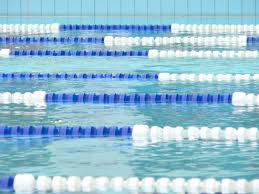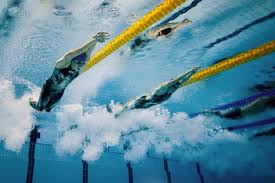We start our season on Monday and even though many of our athletes are ready to dive in and work hard toward their goals, I have learned to slow things down the first 3 days of the season and make sure everyone knows and understands how we operate, what to expect, and learn the flow of the individual practices as well as the week. The faster we can get organized, the better we will be. Practice organization can play a big role in the success of your team. A good practice has good spacing, flow, and is well choreographed.
I have to credit much of my increased attention to details over the last 5 years to Jim Steen (Kenyon), who I have had the privilege to work with during the summer. His attention to detail with who swims in what lane, making sure the athletes understand what they are working towards, and keeping them committed to the process really made an impact on me, and has influenced how I coach and run practices at Calvin.
Make sure you go over team expectations, how you want the practices to run, and the more information you can set out for them the better. Surprise sets at the end of practice or changes in the schedule on the fly don't go over very well. Think about the following as you start planning for your seasons.
 Lane Assignments:
Lane Assignments: This takes extra time before practice, but it makes a big difference. Assign swimmers to lanes so you can control who swims with who, who will be good lane leaders, and who you want to compete in lanes next to each other. A good practice can become great when the right people are leading lanes and competing next to each other. If you leave the lane assignments up the the team, they will fall into the same lanes, swim with their best friends, and ultimately it won't be as challenging as it could be.
Teach the Process: I take five minutes every day to explain to the team what I am looking for out of practice. I explain why we are looking for certain things to happen. This keeps them from over working, or not working hard enough, this gives them some ownership in getting the same desired affects. It also allows them to give me some feed back so that if the workout is not feeling the way I explained, we can adjust.
 EZ is EZ, Fast is Fast
EZ is EZ, Fast is Fast: Stay true to your word. If you have told them that Wednesday is going to be a recovery day. Make sure that happens. Make sure you follow the plan you set out for the team. If you need to adjust, make sure that they understand ahead of time.
Know what works: I have seen many great idea's from other great coaches that I have wanted to use with my team. Some of them just won't work because of our lane space, team, and facility. Take your new ideas and stay within what your team can do with lane space, time, and facility.
 Build in recover time
Build in recover time. I think one of the biggest things that we as swim coaches do is push our practice time right to the limit, and then tell them to do a 200 warmdown. When we get to competition, we get angry because they don't take warmdown seriously. If you want your team to take warmdown seriously, then you have to make it a serious part of the workout. It should be written out, it should be allowed time to get done, and the coach should stay on deck and treat it just like the main set.